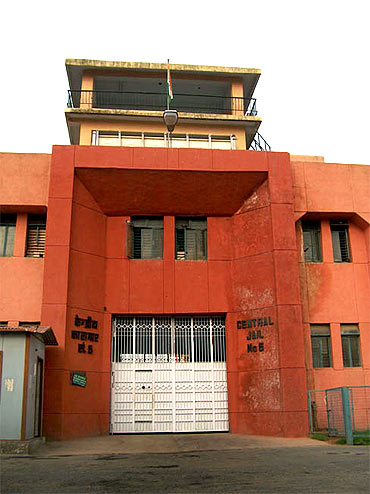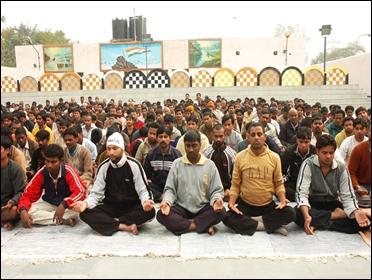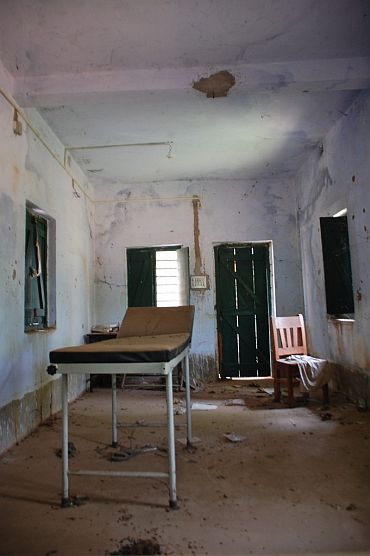 | « Back to article | Print this article |
More bad news for Kalmadi, Raja, Kanimozhi
At a time when scam-tainted politicians, bureaucrats and corporate honchos are lodged in jails due to their alleged involvement in massive scams, the finance ministry has shot down a proposal on prison reforms, claiming it has no money to spare.
The home ministry had sought Rs 3,500 crore to disburse to state governments to undertake the second phase of prison modernisation, but the finance ministry has put the scheme on hold for the time being "owing to the heavy commitment of the government of India to other important sectors."
This was mentioned in a report by the Parliament's Standing Committee tabled in the Rajya Sabha on Monday.
Reportage: A correspondent in Delhi
More bad news for Kalmadi, Raja, Kanimozhi
Phase-I of the scheme, launched in 2002-03, had an outlay of Rs 1,800 crore to improve the condition of prisons, prisoners and prison personnel.
As part of the scheme, 168 new jails and 1,730 barracks were built, besides repairs and renovation of the existing jails, improvement in sanitation and water supply and construction of 8,965 staff quarters for prison personnel.
The parliamentary panel that scrutinised the working of the home ministry was surprised at the discontinuance of the scheme. It sought a concrete action taken report from the government on the panel's earlier recommendations on prison modernisation after consulting state governments.
More bad news for Kalmadi, Raja, Kanimozhi
The panel led by senior Bharatiya Janata Party leader M Venkaiah Naidu, which also includes L K Advani and leaders of various parties, also found that funds meant for modernisation of traffic and communication network in Delhi during the Commonwealth Games remained underutilised.
An amount of Rs 40 crore was allocated for the purpose, but just Rs 10.63 crore was spent.
The committees further expressed unhappiness at the delay in installing a management information system for proper monitoring and concurrent evaluation of the scheme of modernisation of police forces.
More bad news for Kalmadi, Raja, Kanimozhi
The government had selected the state-owned CMC Ltd to develop the software, but its technical proposal was found to be too costly. The committee was told that the government is now exploring an alternative which is less costly and more user friendly.
The panel also noted that the lack of healthcare in Naxal-affected areas was another issue leading to dissatisfaction among the people. It called for special packages to provide health care both under the existing schemes as well as new ones.
"New primary health centres and sub-centres need to be opened and it should be made compulsory for new doctors to serve in these areas by giving some incentives to them," said the committee report.



